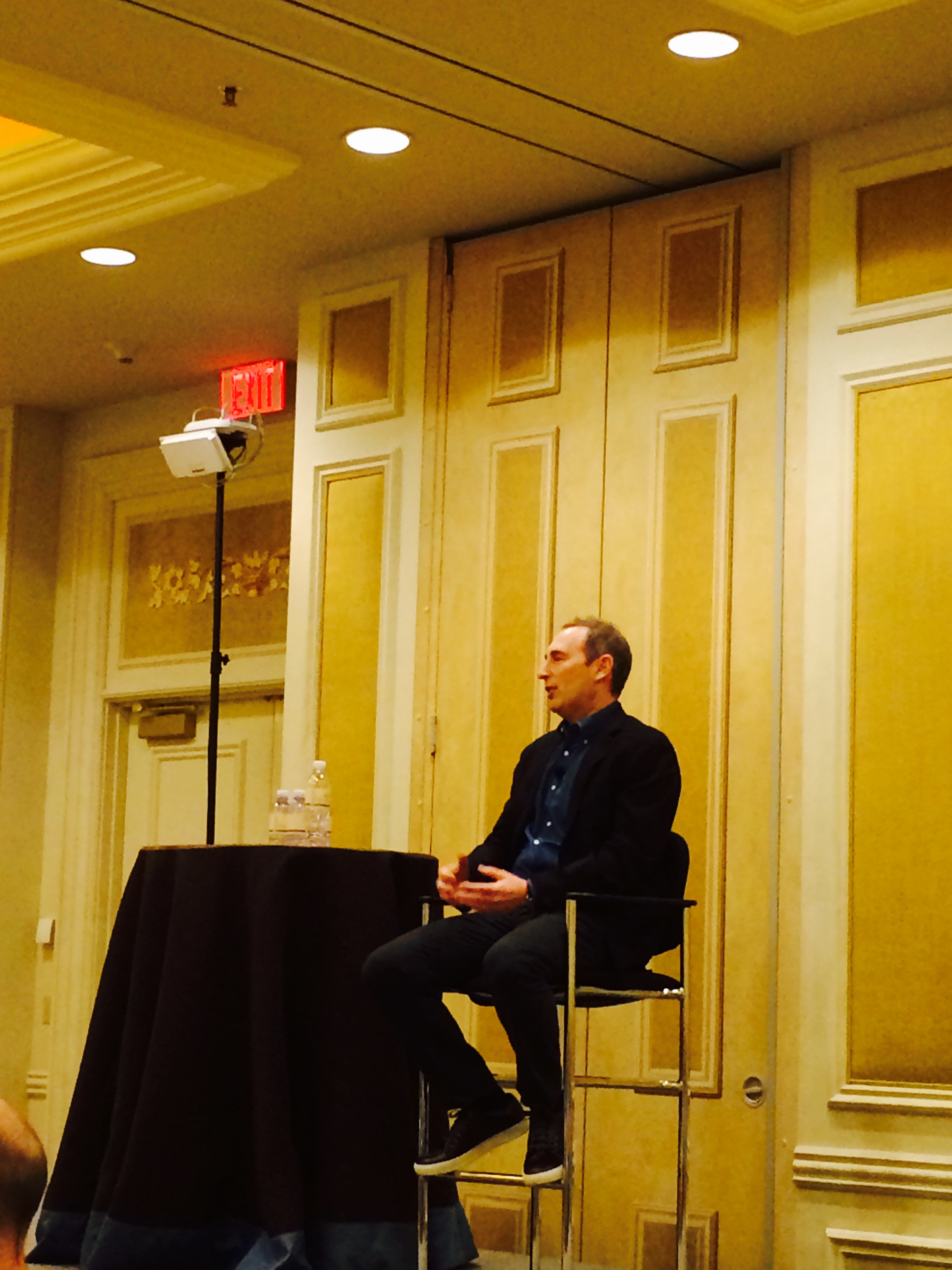AWS: Old tech giants have lost desire to innovate
Yesterday's technology companies lack customer focus, says Andy Jassy

Legacy technology vendors have lost the will and ability to create good products, according to Amazon Web Services (AWS).
Instead, these established tech firms buy in better technology than they can offer themselves, but fail to integrate it properly with their existing services, said the head of AWS, Andy Jassy, speaking at the company's annual re:Invent conference in Las Vegas.
He told media during a Q&A session yesterday: "Most technology companies, particularly the old guard technology companies, have lost their will and their DNA to invent. They really acquire most of their invention.
"That can work too, [but] it's very expensive and it also tends to not usually fit that well together because you're mixing and matching a lot of disparate pieces, and weren't built from the very start with the vision of somebody trying to build a platform."

Head of AWS Andy Jassy during the media Q&A at Re:Invent yesterday
Accusing this 'old guard' of failing to focus on their customers' needs, he said AWS were "pioneers" because of their customer-centric approach, adding: "We're trying to build relationships with our customers and outlast all of those others in this group.
"We hire builders who want to reinvent the customer experience in various areas they think are worthwhile reinventing."
Get the ITPro daily newsletter
Sign up today and you will receive a free copy of our Future Focus 2025 report - the leading guidance on AI, cybersecurity and other IT challenges as per 700+ senior executives
Acquiring other companies is a recognised part of most large tech firms' strategies, with database giant Oracle famously either building or buying new technology, whichever it sees as the best approach at the time.
In fact, Amazon itself bought connected device platform 2lemetry earlier this year to build out its Internet of Things offering.
But many of these vendors get criticised for paying over the odds for their acquisition targets, or for failing to make the most of the investment.
While Oracle's 2010 acquisition of Sun Microsystems in 2010 gave it control of Java and many hardware lines, HP is still embroiled in legal wranglings over its 2011 purchase of software maker Autonomy, after writing down 5.5 billion of the sum it paid for the firm.
Meanwhile, Microsoft's 2013 acquisition of Nokia, which was meant to help it belatedly enter the smartphone market, ended in failure after a $7.6 billion write down of the acquisition and the announcement of 7,800 layoffs planned for its hardware division.
Legacy companies like Oracle, HP and IBM are all experiencing declining legacy sales, yet analysts believe revenues in their new technology lines are not growing fast enough to replace the lost income.
In contrast, AWS grew 81 per cent in its latest quarter to earn $1.8 billion in revenue, with profits quadrupling year-on-year to hit $391 million, a big boost for an organisation whose parent company had not turned a profit for years.
Jassy put AWS's success down to its strong customer focus, saying user feedback inspires 90 per cent of new development.
He added: "We're extremely long-term orientated. You don't see us call you on the last day of the quarter and say 'boy have we got a deal for you'. And you don't see us auditing our customers and then fining them, maybe relieving the fine if they can negotiate a deal to use more of your cloud services - that's not customer focused.
"In this day and age of the cloud, customers have more control and more power than ever before. They expect to be treated differently than they've been treated for the last 30 years."
-
 Bigger salaries, more burnout: Is the CISO role in crisis?
Bigger salaries, more burnout: Is the CISO role in crisis?In-depth CISOs are more stressed than ever before – but why is this and what can be done?
By Kate O'Flaherty Published
-
 Cheap cyber crime kits can be bought on the dark web for less than $25
Cheap cyber crime kits can be bought on the dark web for less than $25News Research from NordVPN shows phishing kits are now widely available on the dark web and via messaging apps like Telegram, and are often selling for less than $25.
By Emma Woollacott Published